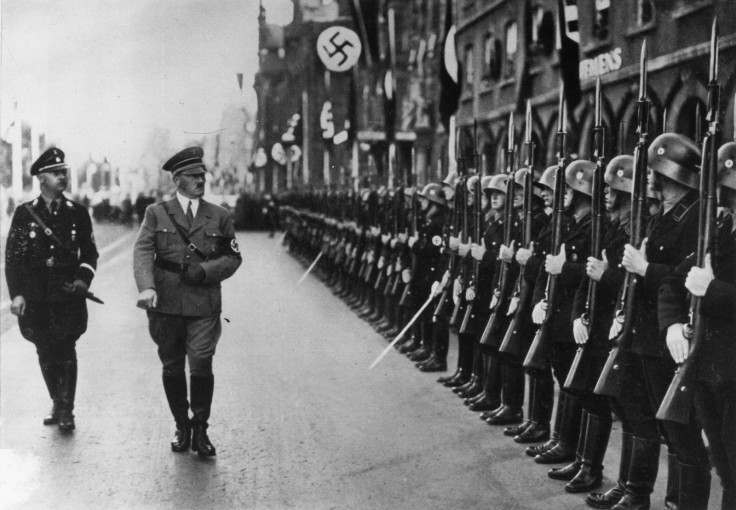Unearthed diaries of Heinrich Himmler show mundanity of Nazi mastermind amid the murders
German newspaper Bild serialised the diaries that have lain dormant for over 70 years.

The phrase "the banality of evil" coined by political theorist and Holocaust survivor Hannah Arendt about the Nazi mastermind Adolf Eichmmann could equally apply to the incidents catalogued in the diaries of his collaborator in evil, Heinrich Himmler.
Documents that had gathered dust in the Russian defence ministry archive in Podolsk near Moscow show the mundane activities of Himmler, including details of his massages, what he had for lunch, phone calls with his wife and daughter, not to mention regular execution orders he dispensed.
The service diaries cover 1938 as well as the war years of 1943 and 1944 and are being serialised by the German newspaper Bild.
They described how Himmler would play cards, gaze at the stars or watch a film, in between meetings with senior Nazi officials and Adolf Hitler, where they plotted and carried out the Holocaust.
One entry outlined how in 1944, Himmler had a massage before overseeing the shooting dead of 10 Polish detainees. On the same day he calls for new guard dogs at Auschwitz "capable of ripping apart everyone but their handlers".
Another entry on a visit to the Buchenwald concentration camp reads: "Took a snack in the café at the SS casino."
The diaries illustrate how Himmler was obsessed with astrology and the Aryan myths that Nazi propaganda was based on. He was also fascinated by strange diets, and in 1943, even told Hitler that the trapped SS soldiers in Stalingrad should be fed the same dried rations as the ones that Genghis Khan gave his warriors.
They describe how on 9 March that same year, he had lunch at the Dachau concentration camp outside Munich, scene of the killing of 36,000 people. The following day, he visited the Sachsenhausen concentration camp outside of Berlin with the head of propaganda, Joseph Goebbels.
Researchers from the German Historical Institute in Moscow have been sifting through the diary entries for months. Director, Nikolaus Katzer, described the collection as "a document of shudderingly outstanding historical significance".
And Himmler researcher Dr Matthias Uhl said: "Himmler is a beast of contradictions. On the one hand, he was the ruthless enforcer who pronounced death sentences and planned the Holocaust. On the other hand, he was, for his SS elite, family, friends and acquaintances, a meticulous carer."
Auschwitz survivor Leslie Kleinman, 86, of Westcliff-on-Sea, Essex, told the Daily Mirror: "I am not surprised Himmler was able to write about his life and then at the same time be responsible for Auschwitz and the other concentration camps."
In May 1945, Himmler fled Berlin only to be captured by Allied forces in northern Germany. He bit down on a cyanide capsule and died aged 44, rather than face post-War justice.
© Copyright IBTimes 2025. All rights reserved.






















